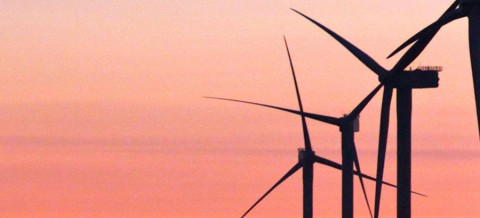
Get it right the first time and save a lot of time and money. The right and proper contract for a wind farm is the roadmap to a solid business case. This calls for knowledge, insight, understanding and, importantly, dialogue on both sides of the negotiation table from utilities and developers.
Today’s wind projects cannot rely on a standard contract from the wind turbine manufacturer. The costs of capex and opex are so high that there has to be a robust contract that secures an investment that should stretch beyond 20 years.
Wild West
In the past, many cowboys, as I like to call them, made fast money on dubious projects or contracts giving the wind energy industry from time to time a Wild West image. Those days are luckily gone and now focus are on reviewing contracts properly from a legal and technical point of view to secure the profitability for all parties involved.
At K2 Management, we have supported clients over the years in all the major procurement and tendering processes as we have extensive and first-hand working experience with all the important players in the wind industry. This includes facilitating tendering auctions, bid schedules, evaluations, and negotiations; monitoring of contract implementation, commissioning of plants, formal contract management, and follow-up and claims management.
We see that good project management starts at the earliest stages of project planning and design decisions. The right or wrong contracting strategy will have a major influence on the outcome of any project. Factors such as how the project will be financed will also influence decisions and risks.
Jigsaw puzzle
Wind projects are often based on multi-vendor or EPC contracting where several construction and procurement contracts have to be managed and coordinated. Such a jigsaw puzzle of terms and conditions requires best in class management, monitoring, and control to help ensure successful implementation, and optimal return on investment.
Project development and purchase of wind turbines, service and balance of plant are complex processes requiring knowledge and experience in order to protect the business case. It is critical to be aware of the factors that affect the business case before initiating the project development and signing the contract.
The main objective is always how to minimize costs through project development and purchase of wind turbines, service and balance of plant. To succeed multiple contracting strategies and the key points and pitfalls in turbine supply agreements (“TSA”‘s), service (operations and maintenance) agreements and subcontracting must be investigated. Additionally other key factors affecting project costs as site selection, land lease, wind measurements, site evaluation, constructability, wind assessment, environmental impact assessment, permits, grid, turbine selection, feasibility study etc. should be taken into consideration.
You have to ask yourself, how to divide and mitigate risks? What to do in cause of delays, takeover of project, tests on completion, force majeure, intellectual property rights, financial guarantees, direct agreements, escrow agreements, warranties, termination, governing law and disputes.
Moreover, what about the types of service agreements, availability and yield warranties, liquidated damages, force majeure?
Here it’s key to have some insights and experience from previous wind projects, so you do not make the same mistakes or reinvent the wheel
Being on top
Many wind projects today operate with a risk interface matrix to assess each contractor’s deliverables and the risk associated with theirs specific scope of supply. The primary goal is to capture a clear overview of the scope responsibility and to verify that all areas have been reviewed and assessed, with a specific owner identified. The creation of such a thorough and complete project plan during the development phase ensures a higher success rate for a smooth implementation of the project.
Being on top of a project requires experience and knowledge concerning the accurate durations of each major activity, based on actual historical data, which helps ensure schedule accuracy and optimization, and the associated cost reductions. This overall approach is today widely accepted by key players in the wind industry, including classification companies and authorities, as it helps to ensure swift, consistent, and high quality project plans are developed for any wind project.
The cost for a wind turbine is roughly EUR 1 million pr. MW, so it is worth spending some upfront resources and money securing a solid contract, service agreements and milestones for a wind project.

3 Responses to The key to success in wind projects is the contract